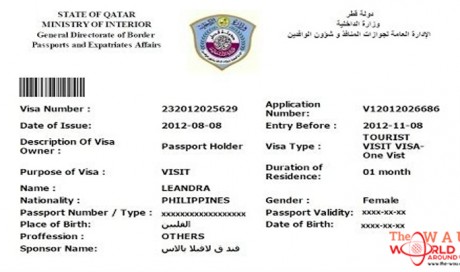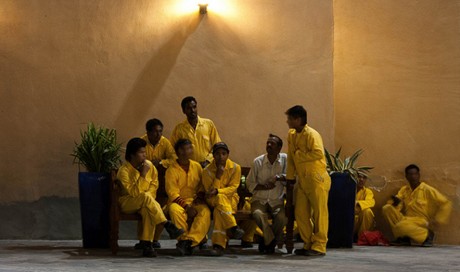HH the Emir Sheikh Tamim bin Hamad Al-Thani has issued a landmark decree on August 22, 2017 which sought to better regulate the domestic work scene in Qatar. The Law No. 15 of 2017 has certain provisions that are beneficial to the domestic workers who are employed in various capacities in a household such as driver, educator, cook, gardener and the like.
It also stipulates some obligations on the part of both workers and employers. Ministry of Administrative Development, Labor and Social Affairs is the nodal agency under this law.
Here’s a detailed look.
Contract
The most important change brought about the law is that it makes it mandatory to enter into a written contract between the employer and the worker. The contract has to be certified by the administration which will retain a copy of the contract. Both employer and worker also have to keep a copy each. The contract should be in Arabic and may be accompanied by a translation. But, in case of any dispute, Arabic version will be considered authoritative. The contract should contain specific provisions about type and nature of the work, date of commencement of work and test period, duration of the contract and terms of renewal and termination and amount of remuneration and details of disbursing it.
Recruirment
The workers have to be recruited in accordance with the provisions of Labor Law through a licensed agency. Employer or his representative can also directly recruit them after getting approval from the administration. However, the recruitment and employment of those below the age of 18 and above the age of 60, of men and women alike, is prohibited. Minister of Administrative Development, Labor and Social Affairs or his deputy cam give a waiver on the maximum age limit.
The worker has to undergo a paid test period before being employed and the duration of this will be decided by the Minister.
Employer Obligations
The law mandates the employer to provide food and adequate shelter. The employer has also to take care of the healthcare needs of the worker and pay for any medical expenses incurred due to illness or injury of the worker. The law clearly prohibits endangering the life or health of the worker or inflicting physical or psychological harm on them. They should not be forced to work on their sick leave. Employing them on rest times of the day and on weekends should be on prior mutual agreement.
The employer is also barred from taking worker abroad for work without consent. The worker can terminate the contract before the expiry and claim entire end-of-service benefits if violation of this clause is proven before competent authority. The employer also needs to pay for the expense of the return journey of the worker in this case.
Worker Obligations
The worker is required to respect the laws, customs, social traditions and religious and moral values of Qatar. They have to perform the agreed work strictly and faithfully. Instructions from the employer have to carry out unless they are contrary to the provisions in the law or harmful to life and wealth of the worker or others. They are also barred from working for others, with or without pay.
They are bound to preserve the secrets and property of the employer and his family members and visitors to the household. Worker should not harm or abuse them, particularly children and the elderly.
Working Hours and Leave
Ten hours per day is the prescribed maximum working hours in the law. However, this can be altered by mutual agreement. Periods of worship, rest and eating, which intersperses with the working hours should not be included in the calculation of the working hours.
The law entitles annual paid leave of three weeks in a year and a return air ticket to home after two years for the worker. A paid weekly leave of 24 hours is also mandated. The annual leave need not be taken together but its division should not be detrimental to the worker.
Wage and Benefits
The law stipulates that monthly wage has to be provided in the Qatari currency at the end of each month and it should not be late more than three days of the next month. The mode of payment has to be spelt in the contract. No fees or expenses shall be deducted from the wage other than what the worker is liable to employer. The law makes provision for a termination indemnity benefit to the worker who has been employed for a period of one full year or more. The user is also entitled for a reward for each year of service.
When a worker dies during the stay, employer has to bear the cost of sending back the body, if the family of the worker requests it. Otherwise, the administration will recover what it spends for this purpose. He has to deposit end of service benefits and any financial dues with the Ministry within 15 days of death.
Dismissal and Termination
If the worker found to be in violation of the obligations in the law, the employer may dismiss him without warning or end of service benefits for the particular year of dismissal. Similarly, the worker may terminate the contract before expiry and claim end of service indemnity in the reverse condition that is if employer violates the obligations under the law. He will be free to do this under certain other conditions like fraud committed by employer or his representative at the time of contracting, offence committed by employer or a member of his family against the worker or his life, negligence on the part of employer to remove a serious risk to the safety or health of the worker.
Disputes
Disputes regarding the provisions of the law will be governed under the relevant provisions of the Labor Law. Compensation for work injuries will also be in accordance with the provisions of the Labor Law.
The violation of the provisions in the Law may attract a fine of up to either QR 5000 or 10000.
Share This Post














